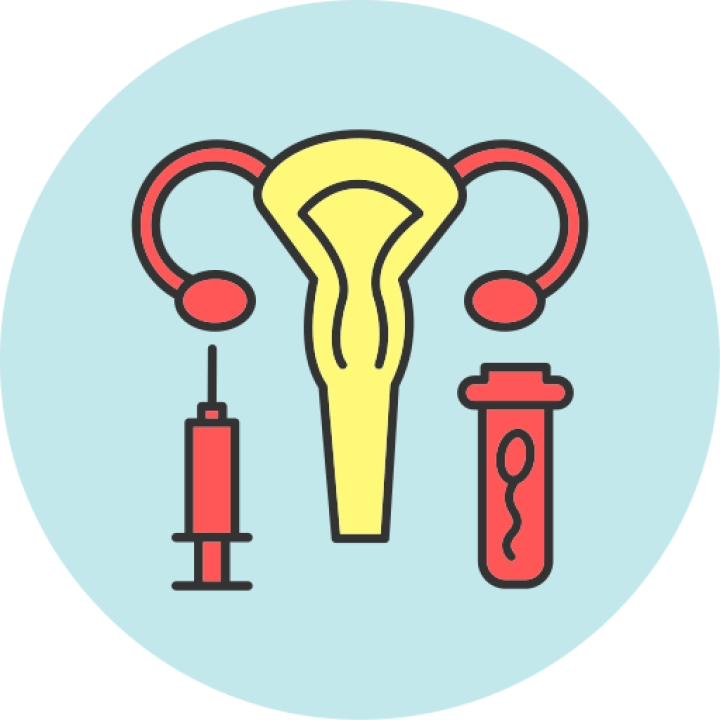Faculty: Institute of Graduate Programs
This major focuses on the study and practice of reproductive health and medicine. Students explore key areas such as reproductive endocrinology, infertility, assisted reproductive technologies, and reproductive genetics. The program emphasizes clinical skills, research methodologies, and understanding of ethical and social considerations. Graduates are prepared for careers in reproductive medicine, fertility clinics, research institutions, and related fields.
Learning Objectives:
- Understand the basics of reproductive medicine and endocrinology.
- Develop clinical skills in diagnosing and treating infertility and reproductive disorders.
- Learn techniques of assisted reproductive technologies and reproductive genetics.
- Explore ethical and social considerations in reproductive medicine.
- Understand the role of research in promoting reproductive health.
- Analyze challenges and opportunities in reproductive medicine.
- Develop teamwork and problem-solving skills in clinical and research settings.
Main Outline:
- Introduction to Reproductive Medicine
- Overview of reproductive medicine, fundamental concepts, and historical context.
- Basics of anatomy, physiology, and reproductive endocrinology.
- Reproductive Endocrinology
- Principles of reproductive endocrinology, including hormonal regulation and reproductive cycles.
- Techniques for diagnosing and managing endocrine disorders related to reproduction.
- Infertility and Fertility Preservation
- Basics of infertility, including causes, diagnosis, and treatment options.
- Techniques for fertility preservation and management.
- Assisted Reproductive Technologies
- Principles of assisted reproductive technologies, including in vitro fertilization (IVF), intrauterine insemination (IUI), and intracytoplasmic sperm injection (ICSI).
- Techniques for conducting and optimizing assisted reproductive procedures.
- Reproductive Genetics
- Basics of reproductive genetics, including genetic testing, counseling, and preimplantation genetic diagnosis (PGD).
- Techniques for integrating genetic information into reproductive medicine practice.
- Ethical and Social Considerations
- Exploration of ethical and social issues in reproductive medicine, including informed consent, access to care, and cultural sensitivity.
- Principles of ethical decision-making and professional conduct in reproductive medicine.
- Research Methods in Reproductive Medicine
- Principles of research methods, including experimental design, data collection, and analysis.
- Techniques for conducting and evaluating research in reproductive medicine.
- Clinical Practicum in Reproductive Medicine
- Real-world clinical experiences, including observations, internships, and practical projects in fertility clinics and research institutions.
- Techniques for applying acquired skills in practical reproductive medicine settings.
- Capstone Project in Reproductive Medicine
- Comprehensive project applying acquired skills in reproductive endocrinology, infertility treatment, or assisted reproduction.
- Techniques to present innovative and distinguished research or clinical projects in reproductive medicine.
Assessment Methods:
Reports on reproductive endocrinology, infertility treatment plans, analyses of assisted reproductive procedures, studies of reproductive genetics, ethical considerations papers, research methodology papers, clinical training reports, capstone projects, group projects, and internships.
Recommended Textbooks:
- "Reproductive Endocrinology and Infertility" by Robert L. Barbieri.
- "Infertility and Assisted Reproduction" by Peter R. Brinsden.
- "Reproductive Genetics" by Mark Hughes and Sally Dunwoodie.
- "Ethical Issues in Reproductive Medicine" by Guido Pennings.
- "Research Methods in Reproductive Medicine" by various authors.
Prerequisites:
Basic knowledge of biology, physiology, and medical sciences. Suitable for students interested in reproductive medicine, fertility treatment, and reproductive health research.
Duration of the Major:
Typically 4 years to earn a bachelor's degree, including coursework, projects, clinical training, and internships. Advanced degrees may take additional years.
Certification:
Graduates may earn a degree in reproductive medicine and pursue professional certifications in reproductive endocrinology, infertility treatment, or assisted reproductive technologies.
Target Audience:
Aspiring reproductive medicine specialists, fertility physicians, reproductive health researchers, and professionals seeking specialization in reproductive medicine. This major equips students with the clinical, research, and practical skills necessary to excel in reproductive medicine and support careers in fertility clinics, research institutions, and related fields.

